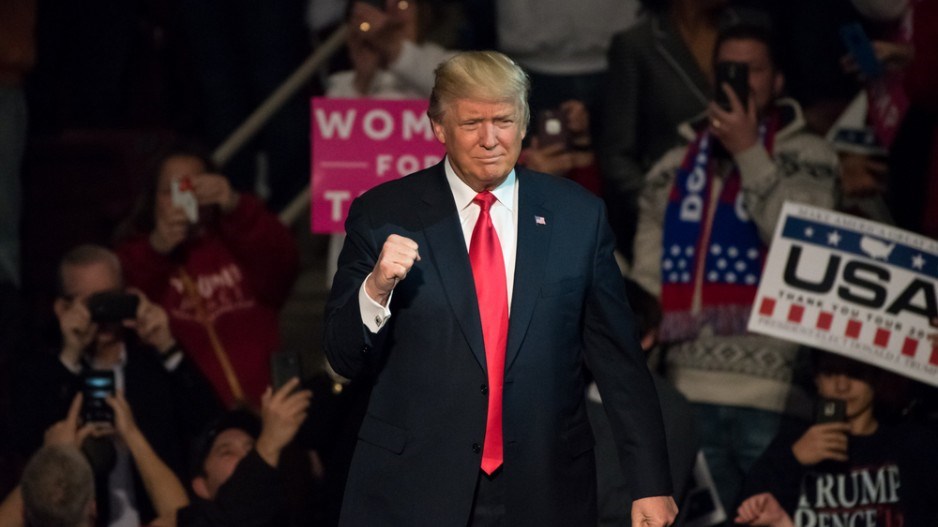Last month’s executive order from U.S. President Donald Trump banning travellers from seven Muslim-majority countries left companies scrambling to help detained workers or those trapped in travel limbo. Meanwhile, protesters gathered and supporters frothed at the prospect of tightened borders.
In Vancouver, Rick Perreault took to Twitter with a straightforward offer: “Stuck in YVR trying to get in to the US & need space to work, wifi, phone, you’re welcome to use my office, [direct message] me #WelcometoCanada.”
The CEO of Vancouver-based Unbounce, an online marketing platform for businesses, said the executive order is causing worry among his American workers and it’s unclear how many employees this could affect.
Perreault said most days he doesn’t worry about losing highly skilled tech workers to local firms. It’s the American tech giants – the same ones railing against Trump’s executive order – that are his biggest concern.
“We rarely lose talent to one another. We lose them to Apple [Nasdaq:AAPL] and Netflix [Nasdaq:NFLX] and U.S.-based companies,” he said. “And I think that is something [where] people living in Vancouver might just go, ‘Maybe I’ll wait this out for a while.’”
Bruce Harwood, a Vancouver-based immigration lawyer at Boughton Law, said U.S. companies with sizable offices in Vancouver – think Microsoft (Nasdaq:MSFT) or Amazon (Nasdaq:AMZN) – would likely look to their Canadian offices as safe havens for workers affected by the ban.
“If their status in the United States is jeopardized, and they have valid passports and qualify under the intra-company transferee provision, that would be the easiest way to bring them in,” said Harwood.
“My gut feeling is that the more protectionist the United States becomes and the more difficult it becomes from a labour mobility perspective, [Canada] will benefit from that.”
Ali Pourdad, CEO of Vancouver-based financial technology company Progressa, said he’s taking a more cautious approach before judging whether Canada stands to benefit from immigration uncertainty in the U.S.
“It’s possible, but who knows what Trump is going to say to Microsoft and Google [Nasdaq:GOOGL] if they’re hiring more people in Canada than the U.S.,” he said. “They could be penalized for that.”
Beyond the Canadian response to Trump’s executive order – Prime Minister Justin Trudeau is touting the country as open to immigrants – Harwood said Canada also likely appears even more enticing to highly skilled European workers.
Provisions in the Comprehensive Economic and Trade Agreement (CETA) with the European Union, which is expected to be ratified later this year, will ease worker mobility between Canada and Europe compared with the U.S. and Europe.
“But I’ll say to you right now, there have been no published policy guidelines on how we are to implement bringing in specific professionals from countries in Europe under CETA,” said Harwood, a former officer with the Department of Citizenship and Immigration.
“It’s a little worrisome that we haven’t seen them do that, and I would trust that it’s coming.”
Jason Langrish, executive director of the Canada Europe Round Table for Business, said CETA could also boost business investment at home as Trump pursues protectionist policies in the U.S.
“You could have American companies who currently export to the EU going, ‘You know what? We thought we were going to get duty-free access into the European market through our negotiations, but they’re clearly not going anywhere. But we look north and we see Canada’s got an agreement. Maybe we should relocate some of our operations into Canada so that we can get some of that benefit as well,’” said Langrish, who also worked on negotiations for CETA.
“[Canada’s] a bit of a lucky country, but it’s also a smart country. It’s not, at least so far, falling into this sort of protectionist/anti-immigrant sort of sentiment, and I think that’s key.”




